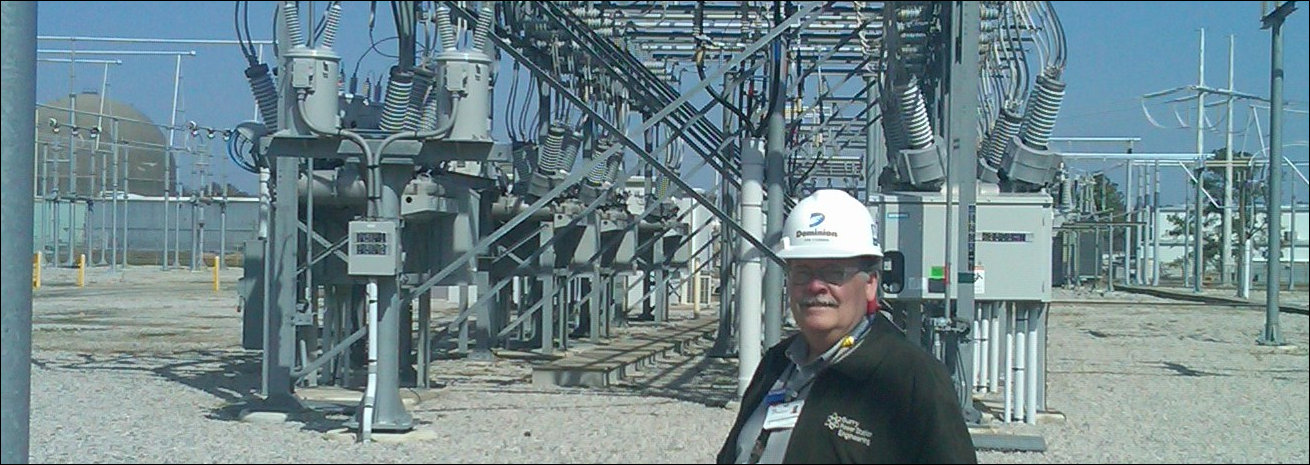
The proposed 500 kv line would connect with the transmission infrastructure at the Surry Power Station, as seen in this photo of the Surry switchyard.
The U.S. Army Corps of Engineers has not yet granted Dominion Virginia Power a permit to build a transmission line across a historic stretch of the James River, but it has rejected the argument advanced by foes who argued that electricity demand in the Virginia Peninsula could be met by other means.
“Additional analysis further demonstrates that there is a need for this project from both Dominion’s and the general public’s perspective,” Col. Jason E. Kelly wrote in a letter to the Advisory Council on Historic Preservation last week, reports the Daily Press. Kelly said the Corps review “found nothing to indicate that Dominion’s information regarding the practicability of the alternatives is flawed or incorrect.”
Preservationists and conservationists are distressed by the prospect of high-voltage transmission towers interrupting vistas of “Virginia’s founding river” from Jamestown and other locations in the state’s historic triangle.
Foes argue that there are alternatives to the proposed Surry-Skiffes Creek transmission line — they just cost more than Dominion wants to pay. The power company could install scrubbers at the coal-fired Yorktown Power Station, which Dominion is retiring to meet clean air goals, or convert the units to natural gas. They also say that demand-response tariffs and other energy-conservation measures could dampen demand, while a lower-capacity transmission line could run underneath the river at significantly less expense.
While the Corps appears to side with Dominion on this particular issue, it has not seemed to be in any hurry to issue a permit. Dominion claimed that it needed to commence construction of the transmission line last September to avoid rolling blackouts required to protect the integrity of the electric grid. Such incidents, Dominion has said, could occur dozens of times a year, depending largely upon weather conditions.
— JAB


